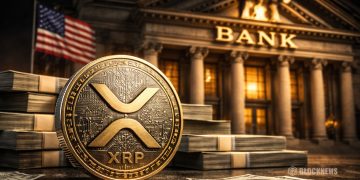- Nigeria’s SEC is exploring options to allow tokenized coin offerings backed by equity, debt, or property
- The regulator prefers to start with straightforward proposals before considering more complicated ones
- The SEC aims to trial digital exchanges for one year with limited services provided and SEC monitoring before registering them
Nigeria’s securities regulator is considering permitting tokenized coin offerings backed by equity, debt, or property on licensed digital asset exchanges. This would not include cryptocurrencies, according to Bloomberg.
The move would represent a shift for the Securities and Exchange Commission in Nigeria, which has previously banned cryptocurrencies.
Speaking to Bloomberg, the SEC’s head of securities and investment services said the regulator wanted to start with “straightforward proposals” before ultimately considering more complicated issues. The SEC is also working to trial applications for digital exchanges, with the expectation that such firms will undergo a year of regulatory incubation with limited services provided.
After ten months, the regulator is expected to determine whether to register the company, extend the incubation period, or ask the firm to cease operations. However, before the SEC begins documenting digital asset exchanges, it must first reach an agreement with the central bank.
The bank has prohibited local financial institutions from interacting with cryptocurrency service providers. Nigeria was one of the quickest adopters of cryptocurrencies in the region, but the central bank considerably tightened regulation in recent months.
Nigeria’s Stance on Cryptocurrency
Nigeria has taken a keen interest in cryptocurrency, resulting in a high Global Crypto Adoption Index. Cryptocurrencies have become popular due to inadequate financial services, high inflation, poorly performing naira, and a youthful population. Paxful, a leading cryptocurrency exchange, has taken advantage of the surge in demand, facilitating peer-to-peer trading for cryptocurrency.
The Securities and Exchange Commission (SEC) in Nigeria recently published new regulations for digital assets, providing guidelines for cryptocurrency service providers and financial institutions on how to interact with digital assets. Despite cryptocurrencies not being regarded as legal tender by the Central Bank of Nigeria, they are not criminalized either. Investors commonly trade them through cryptocurrency exchanges, and the P2P trading market continues to flourish, despite a ban by the Central Bank of Nigeria.
The popularity of cryptocurrencies in Nigeria has continued to rise, with local Bitcoin meetups and communities emerging nationwide. However, investors must approach buying and selling cryptocurrencies cautiously and ensure they receive adequate education on the risks involved.
The SEC’s regulatory document offers an opportunity for the cryptocurrency market in Nigeria to flourish further. Token offerings and initial coin offerings will be regulated within the country by the Nigerian SEC, whether by Nigerian or foreign issuers involving Nigerian citizens. With the regulatory framework, the Nigerian government intends to keep pace with the global economic trend.
Currently, the country is looking to normalize tokenized property and equity while creating a final decision for cryptocurrency. Depending on what the regulators choose, crypto may either boom or fade into obscurity in Nigeria.














